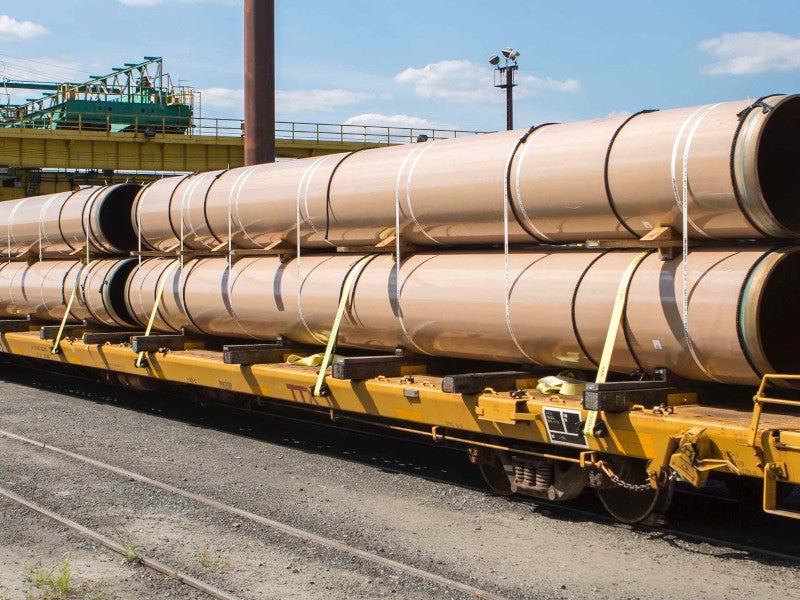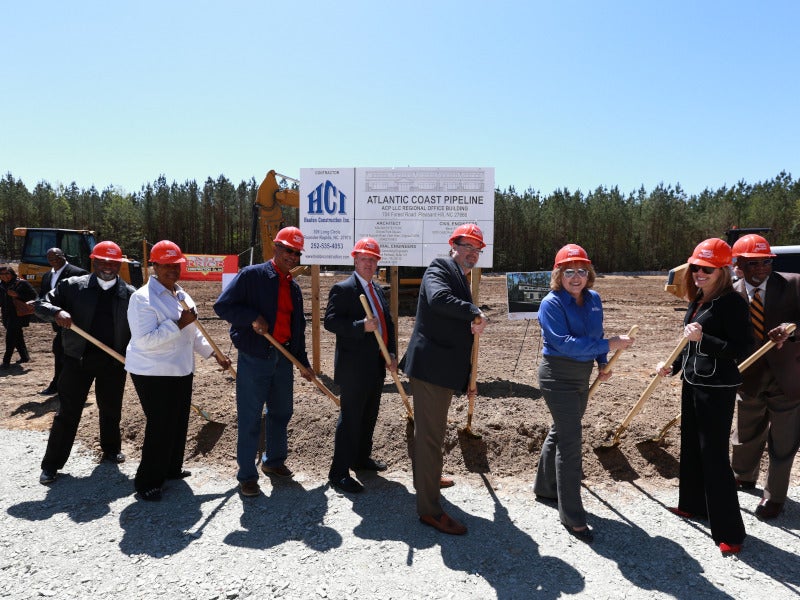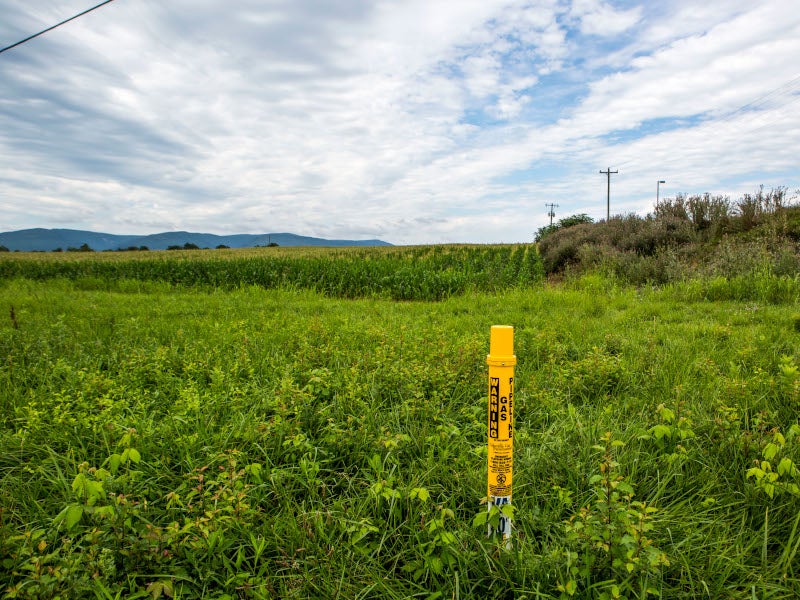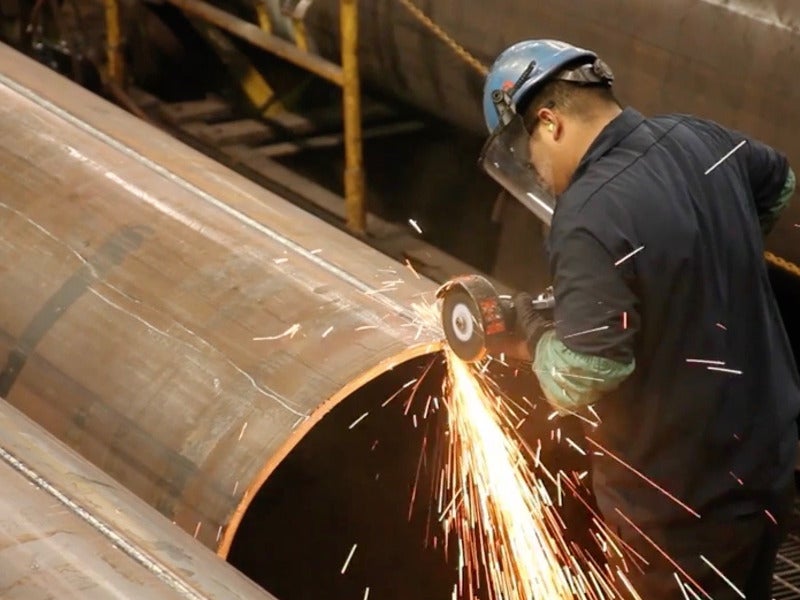27 April 2020
The Atlantic Coast Pipeline (ACP) is a 970km underground pipeline project to transport natural gas from West Virginia to customers in Virginia and North Carolina, US.
The interstate pipeline comprising 42in-diameter as well as 36in-diameter segments will be capable of delivering 1.5 billion cubic feet (bcf) of gas a day. The project is being developed by Dominion Energy and Duke Energy with an estimated investment of £6.2bn ($8bn).
Dominion Energy Transmission (DETI), a subsidiary of Dominion Energy, is responsible for the construction and operation of the pipeline. Dominion Energy agreed to buy a 5% stake in the pipeline from Southern Company Gas in February 2020. Post-transaction, Dominion Energy will hold a 53% stake in the project with the remaining 47% held by Duke Energy.
Construction of the pipeline has been blocked since December 2018 due to legal cases against the pipeline’s proposed route in Virginia.
The Project partners hope to resume construction in the second half of 2020 and bring the pipeline in service in 2022.
Legal and regulatory hurdles
The project received the US Federal Energy Regulatory Commission’s (FERC) approval in October 2017 and the construction on the tail ends of the pipeline was started in the first half of 2018.
The construction works were, however, suspended by a Federal Court of Appeals in December 2018 over the pipeline’s passage through the Monongahela and George Washington national forests and the Appalachian Trail in Virginia.
The US Supreme Court heard oral arguments in support of the pipeline in February 2020, while a judgment is expected by June 2020.
Atlantic Coast Pipeline route and design details
The Atlantic Coast project comprises two mainlines, three lateral lines, three compressor stations, and nine metering and regulating stations.
The Atlantic Coast pipeline will originate in Harrison County in West Virginia at the terminus of the Supply Header project which will provide the feed gas for the pipeline. The ACP pipeline will transmit up to 1.5bcf/d of natural gas to receipt points in West Virginia, Virginia, and North Carolina.
The first mainline will be 42in-diameter and run for approximately 536km from Harrison County in West Virginia to Northampton County in North Carolina.
All three compressor stations will be located along the route of the first mainline. The first compressor station will be located in Lewis County, West Virginia, while the second compressor station will be located in Buckingham County, Virginia. The third compressor station will be constructed Northampton County in North Carolina.
The second mainline will be of 36-in diameter and extend for approximately 299km from the third compressor station to the existing Piedmont pipeline system in Robeson County, North Carolina.
Lateral lines
The first lateral pipeline will be of 20-in diameter and run for approximately 134km from the third compressor station on the mainline to the City of Chesapeake in Virginia where it will interconnect with the existing Virginia Natural Gas pipeline system.
The other two lateral pipelines of 16-in diameter each will be laid from interconnection points on the first mainline to Dominion’s power stations in Brunswick and Greensville counties in Virginia. The length of the pipeline to the Brunswick power station and the Greensville power station will be 650m and 1.6km respectively.
Supply Header project
The Supply Header project involves the construction of approximately 60km of 30in-diameter pipelines in Pennsylvania and West Virginia to feed natural gas to the Atlantic Coast pipeline at its origin point in Harrison County, West Virginia.
Dominion Energy will be the owner and operator of this feed gas pipeline. The Supply Header project also involves the upgrade of Dominion’s existing compressor stations in Pennsylvania and West Virginia.
Gas off-take from the Atlantic Coast pipeline
The customers for the Atlantic Coast pipeline include Dominion’s subsidiaries Virginia Power Services and Public Service Company of North Carolina, Duke Energy’s affiliates Duke Energy Progress, Duke Energy Carolinas, and Piedmont Natural Gas Company, and Virginia Natural Gas, which is a subsidiary of Southern Company Gas.
Contractors involved
Dura-Bond Industries received an order worth more than £265m ($400m) to manufacture and supply steel pipe joints for the project in February 2015.
Dura-Bond will also supply pipes for the Supply Header project under a separate contract.
Spring Ridge Constructors received the pipeline construction contract for the Atlantic Coast project in September 2016. Spring Ridge Constructors is a joint venture between four pipeline construction companies including Price Gregory International, U.S.Pipeline (USPL), Michels Corporation, and Rockford Corporation.
MEC Construction was engaged for building the Lewis County compressor station in West Virginia, while Heaton Construction, MJ Price, and Glover Construction were engaged for the construction of the Northampton County compressor station in North Carolina.
Ace Pipeline was contracted by Dominion Energy for the pipeline construction under the Supply Header project.






